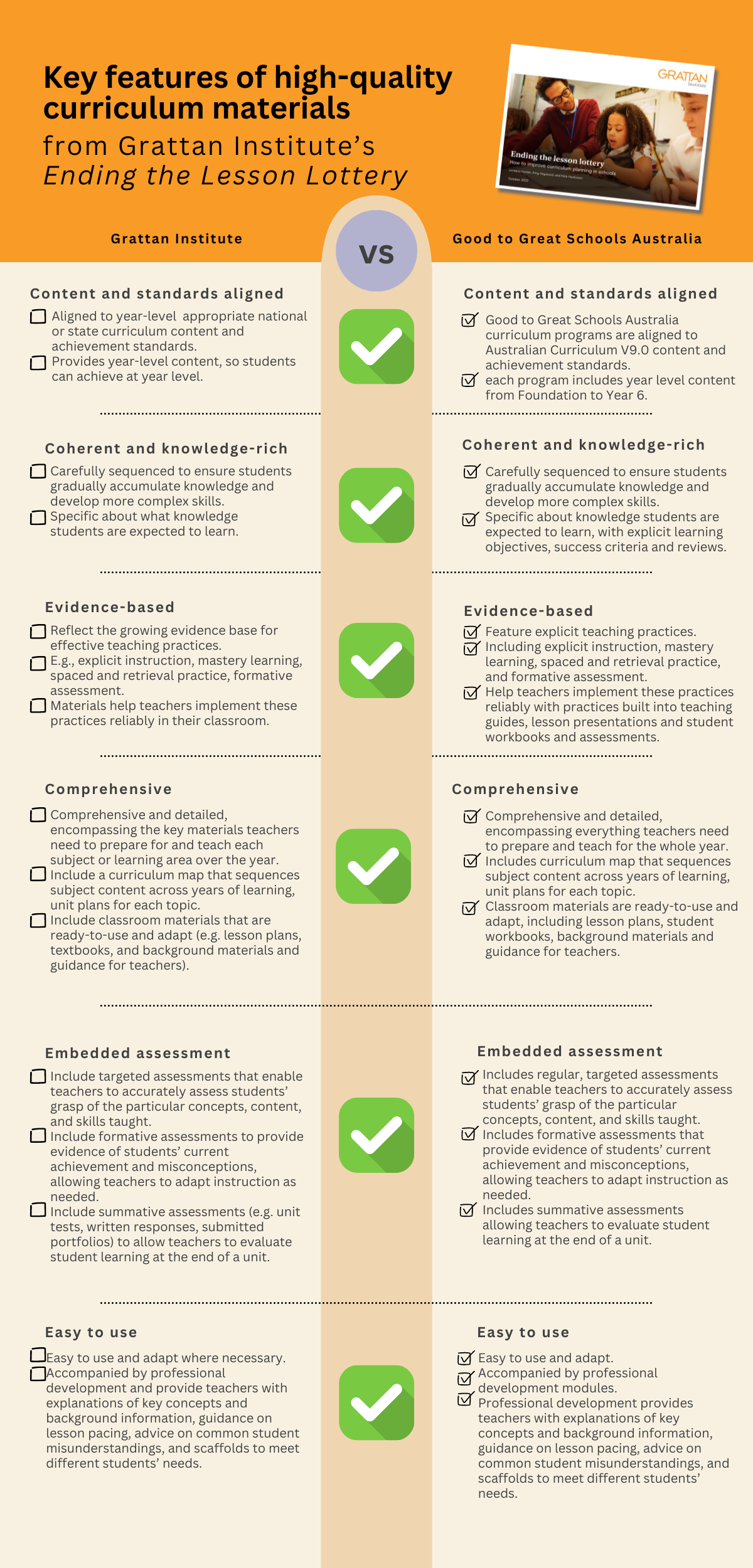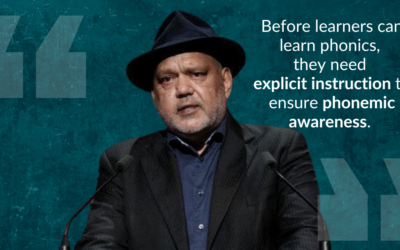Ending the Lesson Lottery: How to improve curriculum planning in schools is a report from the Grattan Institute outlining a road map for improving curriculum planning in schools, thereby reducing the workload of teachers and improving student results.
Keep reading to see the recommendations of the Ending the Lesson Lottery report and how a partnership with Good to Great Schools Australia can help your school end the lesson lottery in 2024.

Recommendation 1: Ensure all teachers have access to high-quality curriculum materials:
- Ensure every school and teacher has access to a suite of comprehensive, high-quality curriculum materials that they can use and adapt as needed.
- Identify and fill critical gaps in curriculum materials.
- Support teachers to deliver curriculum material effectively.
- Make it easier for teachers to find high-quality, comprehensive materials.
How we can help your school achieve this in 2024.
- We provide free access to a suite of comprehensive, high-quality curriculum materials in English, maths, science and music for Foundation to Year 6.
- We have identified the gaps in evidence-based English and maths curriculum programs and developed curriculums to fill the gaps.
- All our curriculum programs include a module to support teachers to deliver the curriculum material effectively.
- All our curriculum resources are online, free and easy to access.
Recommendation 2: Recognise and build curriculum expertise across the system.
- Update the Teacher Standards to clarify that teachers are not expected to develop curriculum materials and to recognise the importance of subject-specific curriculum expertise.
- Update the Principal Standard to emphasise the role of school leaders in establishing a whole-school approach to curriculum.
- Overhaul professional development programs to ensure:
- principals and school leaders can embed whole-school curriculum approaches
- curriculum leaders have deep subject-specific expertise and skills needed to implement a whole school approach in their discipline
- teachers can use, adapt and refine high-quality curriculum materials with confidence (at least 50 per cent of teachers’ professional learning hours each year should be curriculum-specific).
How we can help your school achieve this in 2024.
- Our team of Australian curriculum developers with subject-specific expertise develop comprehensive, high-quality curriculum materials.
- Our curriculum programs include everything teachers need to effectively teach the subject, from teaching guides, lesson presentations and student workbooks to assessments and assessment frameworks, classroom games, posters and extension activities.
- Our curriculum programs and professional learning modules enable school leaders to establish a whole-school approach to curriculum, with high-quality curriculum materials in English, maths, science and music from Foundation to Year 6.
- Our professional development includes curriculum-specific modules enabling teachers to use, adapt and refine high-quality curriculum materials.

More news
- Cape York Students Unlock Potential through Music Education at Annual Band Camp
- Explicit and Direct Instruction: Why Explicit Instruction in Phonemes Is Especially Crucial for ESL Learners
- Explicit and Direct Instruction: The Zone of Proximal Development and the Function of Placement Testing in Direct Instruction
- Integrate HASS with Oz-e-English Writing Years 5-6: Creative Writing, History, Business and Economics, Geography and Civics
- Redefining Special Education: Good to Great Schools Australia Debuts Its Model at the ABA Annual Conference



